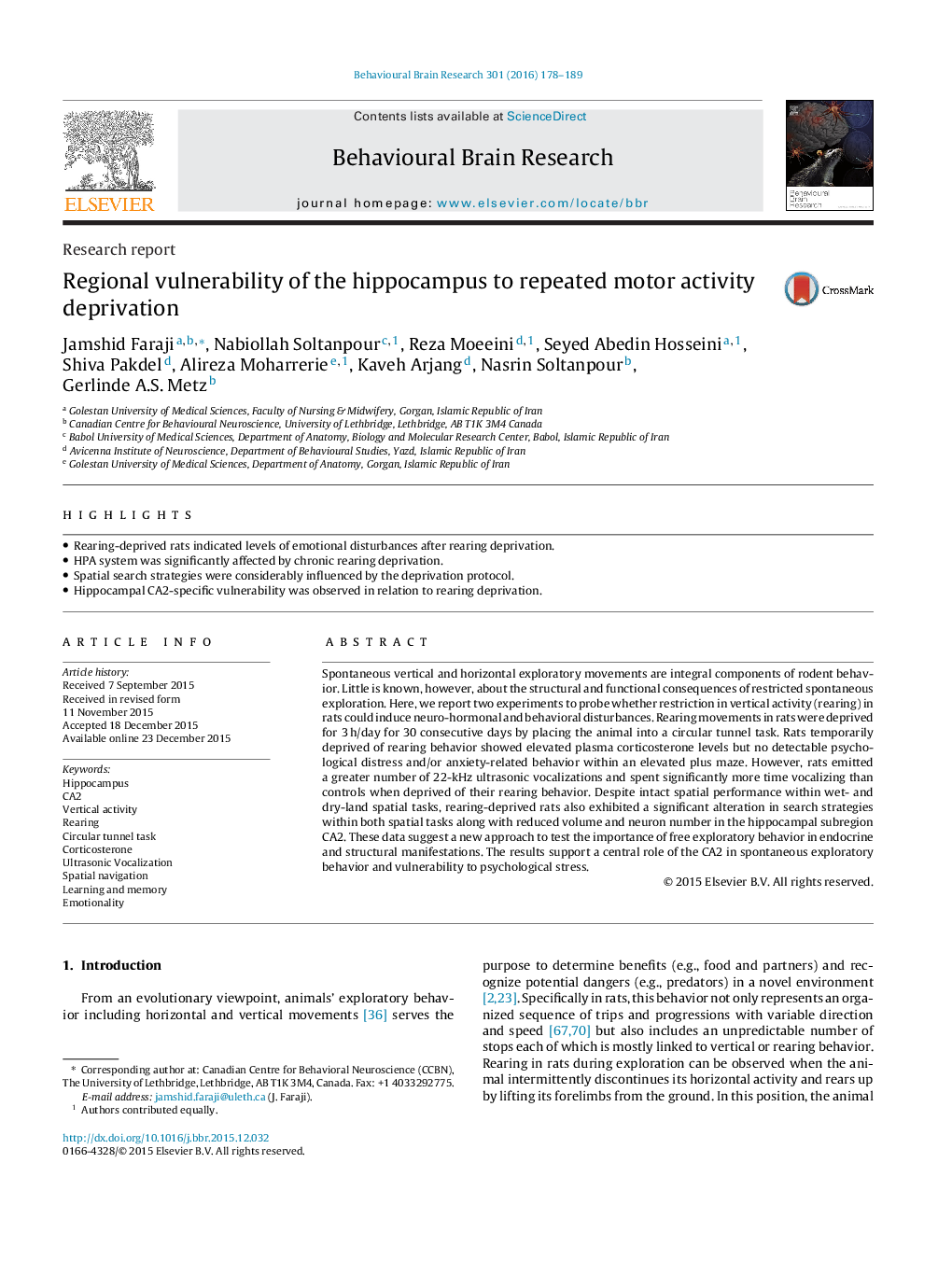| Article ID | Journal | Published Year | Pages | File Type |
|---|---|---|---|---|
| 4312298 | Behavioural Brain Research | 2016 | 12 Pages |
•Rearing-deprived rats indicated levels of emotional disturbances after rearing deprivation.•HPA system was significantly affected by chronic rearing deprivation.•Spatial search strategies were considerably influenced by the deprivation protocol.•Hippocampal CA2-specific vulnerability was observed in relation to rearing deprivation.
Spontaneous vertical and horizontal exploratory movements are integral components of rodent behavior. Little is known, however, about the structural and functional consequences of restricted spontaneous exploration. Here, we report two experiments to probe whether restriction in vertical activity (rearing) in rats could induce neuro-hormonal and behavioral disturbances. Rearing movements in rats were deprived for 3 h/day for 30 consecutive days by placing the animal into a circular tunnel task. Rats temporarily deprived of rearing behavior showed elevated plasma corticosterone levels but no detectable psychological distress and/or anxiety-related behavior within an elevated plus maze. However, rats emitted a greater number of 22-kHz ultrasonic vocalizations and spent significantly more time vocalizing than controls when deprived of their rearing behavior. Despite intact spatial performance within wet- and dry-land spatial tasks, rearing-deprived rats also exhibited a significant alteration in search strategies within both spatial tasks along with reduced volume and neuron number in the hippocampal subregion CA2. These data suggest a new approach to test the importance of free exploratory behavior in endocrine and structural manifestations. The results support a central role of the CA2 in spontaneous exploratory behavior and vulnerability to psychological stress.
